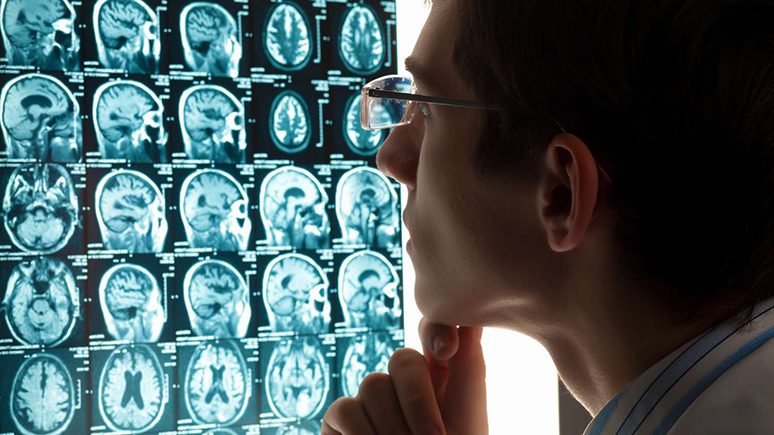There are no specific MS tests, doctors use a differential diagnosis, which consists of eliminating other possible diagnoses.
Multiple sclerosis diagnosis consists of:
- a thorough medical history and examination;
- blood tests;
- tests for specific biomarkers associated with multiple sclerosis, which are currently under development;
- spinal tap (lumbar puncture), in which a small sample of cerebrospinal fluid is removed from the spinal canal for laboratory analysis of abnormalities in antibodies;
- MRI can reveal areas of MS (lesions) in the brain and spinal cord;
- evoked potential tests, which record the electrical signals in legs and arms produced by the nervous system in response to visual or electrical stimuli.
In most patients with relapsing-remitting multiple sclerosis, the diagnosis is reasonably simple and based on a pattern of symptoms consistent with the disease and confirmed by MRI.
In people with unusual symptoms or progressive disease, multiple sclerosis diagnosis is more complicated and involves further MS testing with spinal fluid analysis, evoked potentials, and additional imaging.
Click here to read more about treatment of the nervous system.
















Leave a Reply
You must be logged in to post a comment.